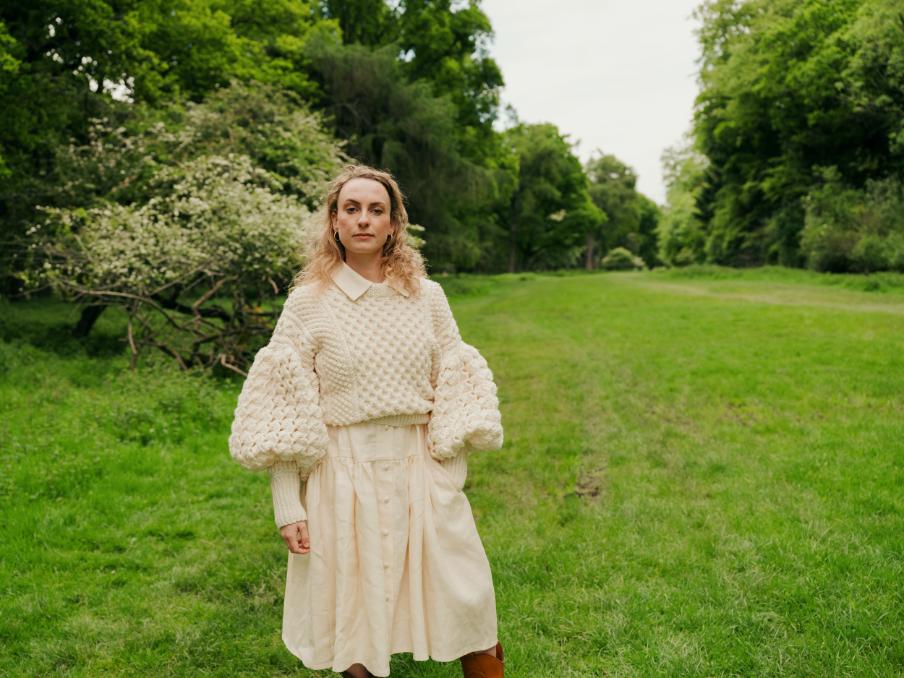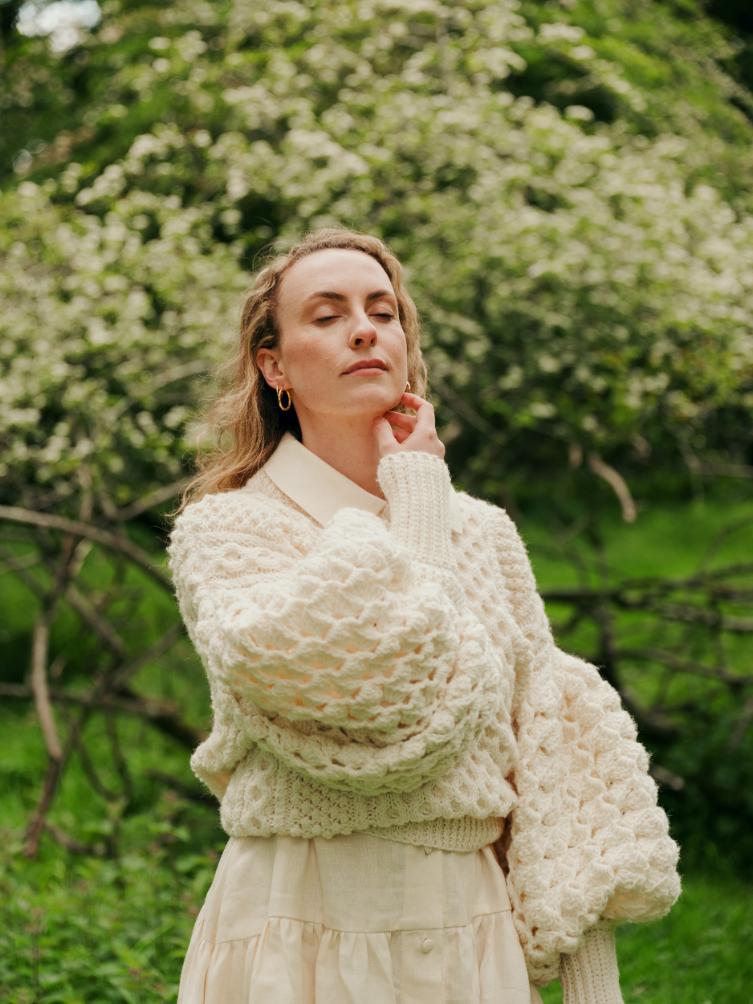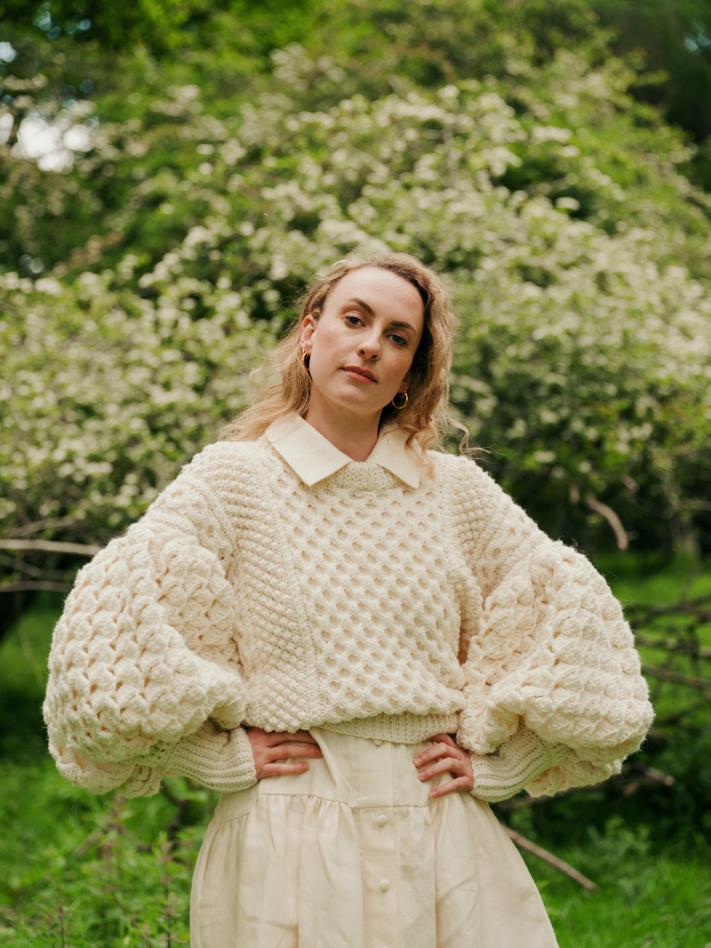Niamh Bury In Conversation with FAULT Magazine

Celebrated as one of the most promising talents to emerge from Ireland’s vibrant folk music scene, Niamh Bury is set to captivate audiences with her highly-anticipated debut album, “Yellow Roses,” slated for release on Friday, March 29th, 2024. We caught up with Niamh to discuss the upcoming project and of course, her FAULTs.

How does it feel to finally be sharing “Yellow Roses” with the world?
It feels really nice. “Yellow Roses” is a collection of songs I’ve had in my life for a little while now, so I can’t wait to get them out into the world. I worked with some of the best people on it, and I’m really proud of what we made.
The album features a diverse range of influences from folk to classical to alt-rock. How did you navigate blending these various musical styles to create a cohesive sound for “Yellow Roses”?
I think, like most musicians, I’m influenced by a pretty wide range of genres. I grew up listening to a lot of ’60s and ’70s folk, but also a lot of grunge and alt-rock as a teenager. The easiest way for me to describe the album is “folk” because I think that’s what most people would categorize it as – for the most part, it’s pretty mellow, and we recorded with all acoustic instruments except for the mellotron synth sound. The musicians I worked with on the record come from classical, jazz, and traditional Irish backgrounds, so naturally, that fed into the album to make a blended sound that I think provided the perfect world for the 10 songs to live in.
Could you share the story behind the album title, “Yellow Roses”?
The title is named after one of the songs on the album that I wrote about my grandmother. For me, her life was an example of the wisdom of finding strength and resilience in beautiful things despite whatever hardship is going on around you. She loved animals, nature, and glamour, and the yellow roses in her garden were blooming for her when she passed in 2017.
What do you hope listeners take away from the track “Budapest”?
“Budapest” is an attempt to express that feeling of being a small part of a bigger picture. I think it’s really important to step outside of your own story from time to time and feel connected to the wider world. I hope listeners get a sense of that when they hear it.
“The Ballad of Margaret Reed” delves into themes of history and social justice. What inspired you to write about this topic, and what message do you hope to convey through the song?
“The Ballad of Margaret Reed” was written when I was living on the Norfolk coast. I was learning a bit about the folklore of the area and came across a story about a woman in King’s Lynn who was a victim of the witch trials and was tragically burned at the stake. I wrote this song in the first person to give her a voice and convey the utter insanity of that whole period of history. Unfortunately, I think it still has many ripples today in the way society ostracizes any behavior that threatens the patriarchy.

You’ve been recognized as one of Irish folk’s most exciting new talents. Does the acclaim bring with it added pressure to live up to the hype?
No, I don’t think so. Of course, I hope people find something in this album that resonates with them and that they enjoy, but either way, I’ll keep writing and making music for myself.
With your upcoming UK & Ireland tour, what can fans expect from your live performances, and are there any particular venues or cities you’re especially looking forward to visiting?
I’ll be doing a combination of solo, duo, and full-band performances for my upcoming tour, and I’m really excited to share the songs from the album with new people and places. I’m really looking forward to my hometown gig in Dublin at the end of April, but before that, I have a bunch of Irish dates and three gigs in the UK – The Folklore Rooms in Brighton on the 16th of April, The Slaughtered Lamb in London on the 17th of April, and The Crofters Rights in Bristol on the 18th of April. People can find out more at www.niamhbury.com/#live.
What is your FAULT?
I’m very independent and sometimes don’t like asking for help. Making this album has taught me that releasing music is a huge team effort, and I’m really grateful to the people who produced and recorded it with me – I couldn’t have done any of it without them!